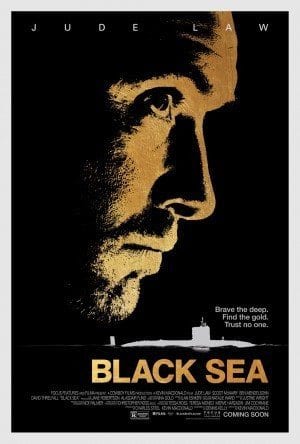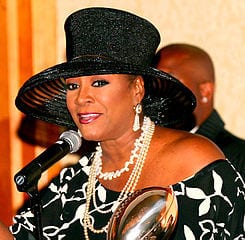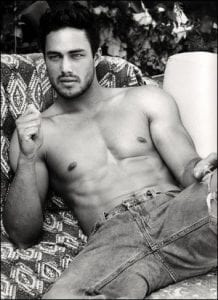Entertainment
Director Kevin Macdonald on new film ‘Black Sea’ and the Art of Compromise
Derick Edgren

An interview with Academy-Award winning director Kevin Macdonald on his newest work
Black Sea stars Jude Law in a claustrophobic underwater thriller. When a team of British and Russian men set out to find a lost U-boat from WWII that is said to have an innumerable amount of gold, their greed slowly begins to suffocate them, and raises the question as to whether or not they will ever see land again.
Academy Award-winning director Kevin Macdonald sat down with College News Magazine to give us the story behind what was a trying but rewarding feat.
Derick Edgren, College News: You’ve wanted to further explore the themes of psychological and physical entrapment [in your films], and the result was this examination of claustrophobia underwater, and I wondered if there were a specific moment in time that you remember this idea coming about.
Kevin Macdonald, Director: In the year 2000 there was a famous submarine disaster called the Kursk disaster, and it was a Russian nuclear sub that went down in the Barents sea, north of Russia. And there was an explosion — a lot of people died immediately — but some of the submariners were trapped in a compartment at the bottom of the sea, waiting for their options to run out, and they were signaling by tapping on the side dink dink dink to the people up above, but they could never be rescued in time. And I thought, That’s a horrible horrible death, and a fascinating scenario for a film. A bunch of guys stuck at the bottom of the sea. You start asking why they’re there and what are they looking for […] So that was how the story developed from there.
You’re known for your work on documentaries, like One Day in September. How has your work on documentaries affected your directorial process this time around?
I think it affects me generally in that my attitude is always to try and be as realistic as possible — whatever that means, realistic. To try and bring some of real life into the film set, and so, on this movie we did some crazy things that you wouldn’t normally do on a fiction film. We got real Russian actors over from Russia. The normal thing is to get some people from the Bronx who can pretend to be Russian. And we shot in a real submarine for part of the movie, which is difficult to do and slow and expensive but it meant that right at the beginning of the shoot for two weeks all of the actors and myself got to be on a sub and feel what that’s like. So you bring that feeling onto the set, that sense of what a real submarine is like with you.
I know it was difficult making that happen. Could you tell me more about the story behind that — was it The Black Widow?
The Black Widow is the class of the submarine, and that submarine — it’s kind of an element in the story — that they’re all on is actually based on a U-boat design, and that’s a crucial element of the plot. It’s the same basic design because Stalin shipped U-boat parts to Russia after the second World War and copied them. Because the German naval technology was so far ahead of Russian naval technology. So the ideas in the story, of course, are that these guys, who are lost or unemployed, feel a bit desperate about things — they go off to Sevastapol, which is in Crimea in Ukraine, to bribe a Ukrainian admiral to give them this old submarine so they can go off on their mission. But of course one of the interesting things that’s happened is that Crimea is no longer part of Ukraine since we shot this movie — Vladimir Putin invaded and now it’s part of Russia — and so history has kind of overtaken us, really.
What was it like for the actors and yourself and the rest of the team to work in a real submarine?
It was highly claustrophobic, stunk of diesel, of sweat, because it gets very hot in there. I think it felt very much like it would feel to be underwater because when you’re in a submarine there are no windows. There’s no way of knowing what depth you’re at. When you close the hatch as we would in the morning, we’d all get in there and close it up and then start filming. You know, we could have been at the bottom of the sea. And there were great thing about being in there visually: the beautiful old engineering, the paintwork, the lights, the detail in that set, the pipes and the wires and everything is incredible and the bits of Russian writing is really fantastic. It’s one of the reasons we want to be in there […] You can’t move the actors around very much because it’s not like they can walk and talk like they would in a TV show and keep visual interest like that, so we’re really forced to make it claustrophobic. And that is great in a certain way; that’s what it makes tense. You feel like you’re stuck in this space. So if you move the camera too much around then you would ruin that a little bit, but at the same time you have to worry about not making it too visually repetitive, to feel too similar. So that was the challenge.
How has your process as a director changed as you’ve worked on this project — if it has?
Gosh, that’s interesting. I’m not sure if it has. I think that you change and — maybe you don’t get better — develop and you go through your career and you’re interested in different things and I suppose in this film I was really lucky to work with a lot of brilliant actors, but they weren’t stars apart from Jude Law, who’s the only sort of well-known individual in there. Character actors are such an interesting breed because they’re the guys who really are the best actors around but they maybe aren’t as handsome as the leading man or, you know, they’ve entered acting too late, or they have a broken nose or whatever it is. They’re so good at delineating a character very quickly just for the few lines or even a look. So I felt lucky and that I learned a lot from these actors and I learned a lot from working with Russian actors, too. They work in a very different way. They want to talk about everything a lot in the morning and debate and question everything and offer suggestions. For hours they want to talk and they’re quite theoretical and intellectual about it, whereas the British actors are like Let’s just get on with it, come on, let’s do it, try things out. And so getting used to working together with those cultural differences with the Russians and the Brits was challenging, but they definitely bring an element to the film that I love. There’s such great presence in the film.
Thinking back to your first desire to want to work on this project, and seeing it come to fruition now, do you feel as though you have achieved your initial goal?
That’s a very difficult question! Well, I think in one level, yes, I have. I think I wanted to make a film that was a thriller, that had you on the edge of your seat and really made you feel what it’s like to feel the extremes of human behavior in an unwelcoming environment, and to feel what it’s like in an environment where nature is not your friend, where nature is the enemy, like being in space or being up a mountain in the high altitude, where nature is threatening and it can kill you. So I think in that way those themes came across strongly. I also think that the theme of social inequality, that the anger of the ninety-nine percent against the one percent or the anger of the common working person against the system that they feel is constantly being unfair to them and screwing them, that comes across. But there are always things on the other hand that you feel, I could have done that better or if only I’d reshot that or if I had the money or I’d like that to be bigger, but I think that’s moviemaking. It’s an art of compromise. I don’t think you ever get to do absolutely everything you want. It’s just about what degree you get to achieve what you want. So I watch the movie and I still feel full of regrets but on the other hand I abstractly think that it’s a pretty good movie and it works and it does the things I thought it should do.
Black Sea is out in theaters now.


















